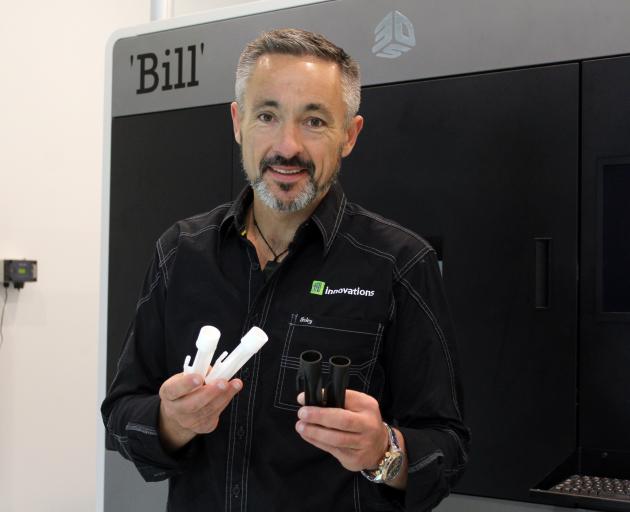
While the number of confirmed Covid-19 cases in Southland, and New Zealand, is at present relatively low, FI Innovations staff want to provide medical equipment such as ventilator parts to hospitals that could experience high demand for them.
However, the company must be deemed an essential service in order to manufacture these.
Sales and marketing manager Carl Johnston said he was ‘‘pretty confident’’ it would be, and said there were three products it had printed that could be used during the pandemic.
The first was a ventilator part, which he said was in high demand overseas in places with many cases of the virus. These were both nylon and resin, which the equipment was typically made from.
The printer, as well as two other components used to manufacture the products, were in a climate-controlled and ventilated row of rooms; sterilisation would occur at the hospital that ordered them.
With the type of printer available to it, the company could produce about 200 of these a night.
‘‘These are what they have run out of overseas.’’
Mask adaptors — which gave medical staff a higher level of protection when treating patients — were also able to be printed.
The third product was a hands-free door handle opener, which Mr Johnston said had already been purchased for apartment buildings in Auckland.
As demand for these products increased globally, files had become available for download to enable 3-D printers to manufacture them.
Mr Johnston said his company’s printer was new in January and was one of only two commercially available in New Zealand. It used selective laser sintering technology.
‘‘It has the potential to provide life saving equipment ... the ability to do this in Southland is huge.’’
While it could not be offered for free, Mr Johnston said there would be subsidised costing for those needing the manufactured products.
‘‘We want to be able to use it to help.’’
He hoped to know today if it would be deemed an essential service.












